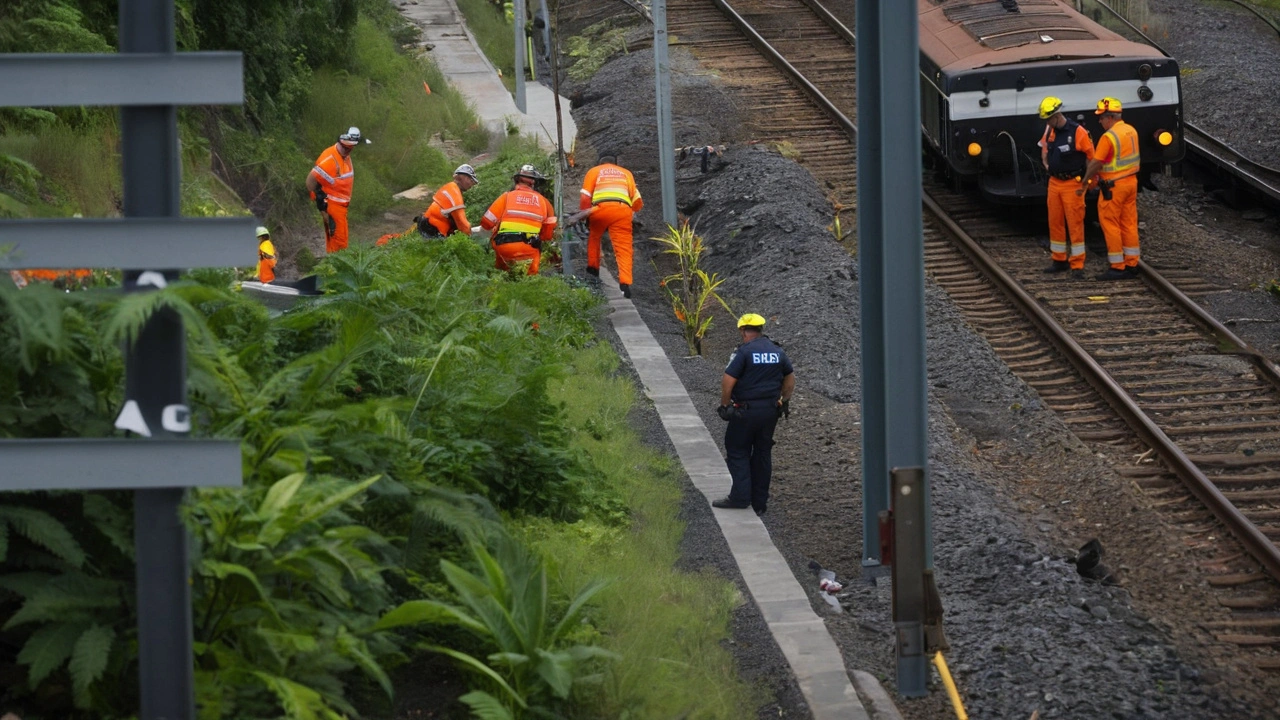Train Attacks in Africa – What’s Happening Now
Train travel is a lifeline for many Africans, but it’s also become a target for sabotage, theft and violent attacks. Over the past year we’ve seen a spike in incidents that range from armed robberies on commuter lines to explosives set off on freight routes. If you’re planning to hop on a train, you deserve to know the risks and what’s being done to curb them.
Recent Train Attack Incidents
In August 2025, a passenger train on Kenya’s Nairobi‑Mombasa line was hijacked by a small armed group. They forced the driver to stop at a remote station, looted cash and valuables, and then let the train continue after a brief hostage situation. Thankfully no one was seriously injured, but the episode left commuters uneasy and prompted the railway authority to increase patrols.
South Africa experienced a different kind of threat last month when a homemade bomb was discovered on a freight train heading to Durban. The device was defused by bomb squads, but the incident sparked a nationwide alert for all cargo operators. Rail companies have since started random inspections and upgraded their tracking systems to spot suspicious packages faster.
In Nigeria, thieves have been targeting high‑value cargo on the Lagos‑Kano corridor. They use sophisticated methods, like cutting power to signal boxes and slipping into unmanned carriages at night. The losses amount to millions of dollars each quarter, pushing the government to consider tighter security measures and community‑based watch programs.
How to Stay Safe on Trains
First, keep an eye on your belongings. Use a lockable bag, store valuables close to your body, and avoid flashing expensive gadgets. If you travel alone at night, choose a well‑lit carriage and sit near the driver or a security presence.
Second, stay informed. Before you book a ticket, check recent news about the route you’ll be using. Many rail operators now post real‑time alerts on their websites or mobile apps, and these updates can help you avoid trouble spots.
Third, trust your instincts. If a carriage feels unsafe or someone seems out of place, move to another car or alert train staff immediately. Staff are trained to handle emergencies, and reporting suspicious behavior can prevent an attack before it unfolds.
Finally, consider travel insurance that covers rail disruptions. Policies often reimburse you for missed connections, lost luggage, or even medical expenses if an incident occurs. It’s a small cost for peace of mind, especially on routes with a history of attacks.
Authorities are not sitting idle. Kenya’s railway authority has deployed armed guards on high‑risk lines, while South Africa’s rail police are integrating drones to monitor remote sections of track. In Nigeria, the federal government announced a new rail security task force that will work with local communities to gather intelligence and respond swiftly.
While the threat of train attacks isn’t going away overnight, the combined effort of rail operators, law enforcement and vigilant passengers can lower the risk significantly. By staying aware and following basic safety steps, you can travel confidently and help keep the rail network safer for everyone.
Paris Rail Network Under Siege Just Hours Before 2024 Olympics Kickoff
- Jeremy van Dyk
- 17 Comments
Just hours before the opening ceremony of the 2024 Paris Olympics, the city faces severe disruptions due to coordinated attacks on its high-speed train network. The malicious acts, involving arson and vandalism, have affected over 800,000 passengers. Despite the chaos, the ceremony featuring 10,500 athletes will proceed as planned.
Read more

